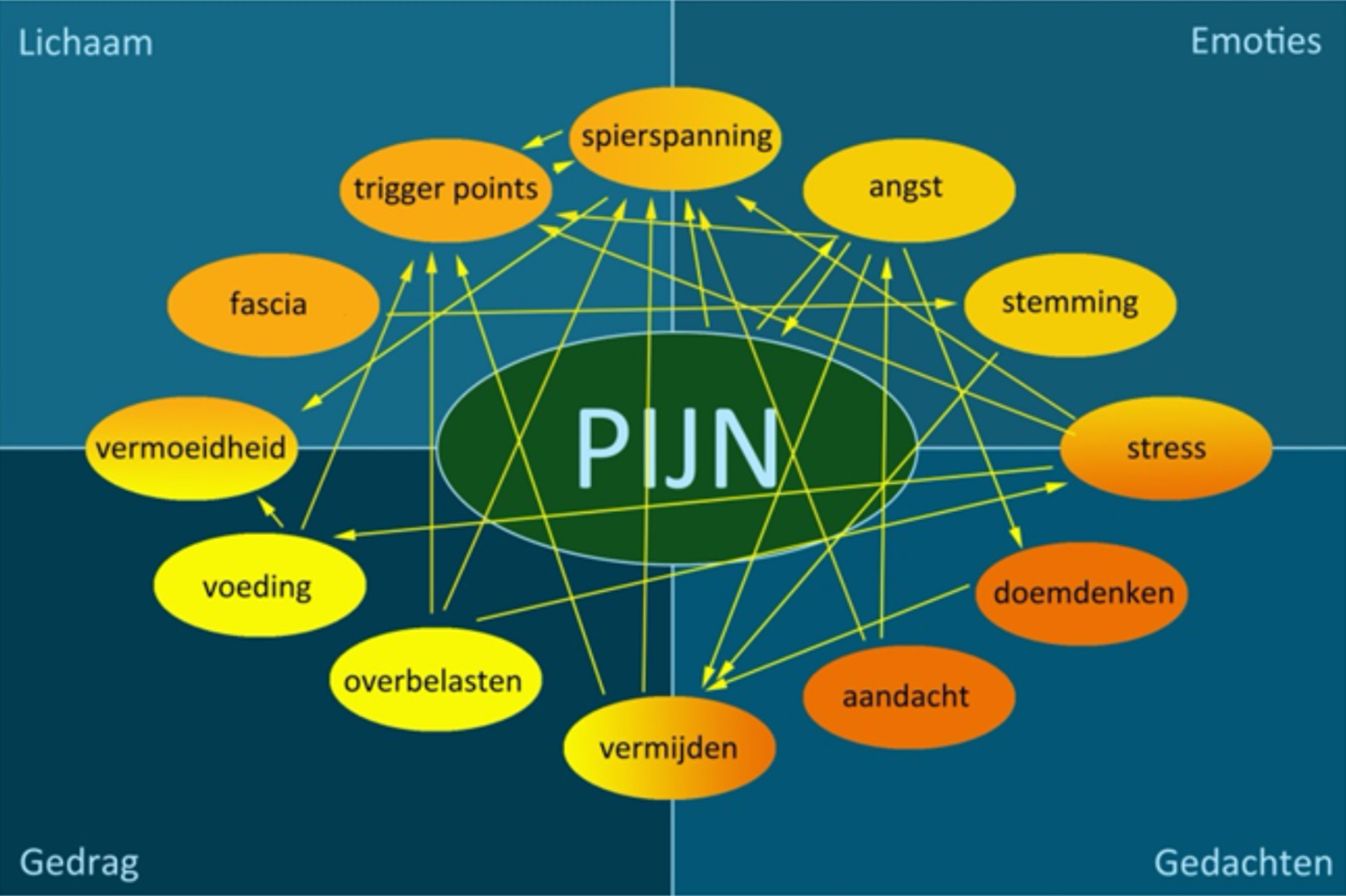Your experience of pain can be very variable. Sometimes you do little and are in a lot of pain, and other times you may have done less while suddenly having a lot of pain. What makes you feel more or less pain?
Story: The builder and the nail
How pain can work is easy to explain with the next true story:
One day a construction worker stepped on a big nail in the workshop. He stepped on it so hard that the nail on the other side of the shoe sticking out again! The worker screamed out in pain. An ambulance took him to the hospital as quickly as possible. He was sedated and put on the operating table. When the shoe was sawn away, the doctor made a discovery. The nail had gone right between the construction worker's toes!
So there was no damage, but the construction worker had felt pain... How could such a thing happen?
How does pain arise
The brain create pain when it make /estimate/ that there is danger. Not only the stimuli from the body determine the pain. The brain searches for other information to decide whether there really is a threat.
Other sources of information are, as you can see in the picture:
- Thoughts about pain
- What you're doing at the moment (behavior)
- How you feel (emotions)
- Where your attention is
- Previous experiences with pain

How could the builder have felt pain?
If you look at the example above, you can perhaps imagine that the builder in the example felt pain after all. He may have tightened his muscles. He must have gotten scared, got stressed. Maybe he thought he had to give up his job (doomsday). Attention immediately went to his foot. Maybe he didn't dare to stand on his foot anymore and started to avoid movement. In this way there have all been things that strengthened the feeling of danger in the builder's brain - and he still felt pain!
What about you?
In exactly the same way as with the builder, chronic pain can be exacerbated by causes that are not directly related to the body. Maybe a fear of burdening yourself? Sadness, thinking that it will never get better... Or maybe paying a lot of attention to your own pain, or sleeping badly.
Reducept, and this blog, focus on all those factors. How can you reduce pain without medical interventions? How can you 'reset' your brain - so that it is less likely to conclude that there is danger? Discover it in Reducept and on this blog!
